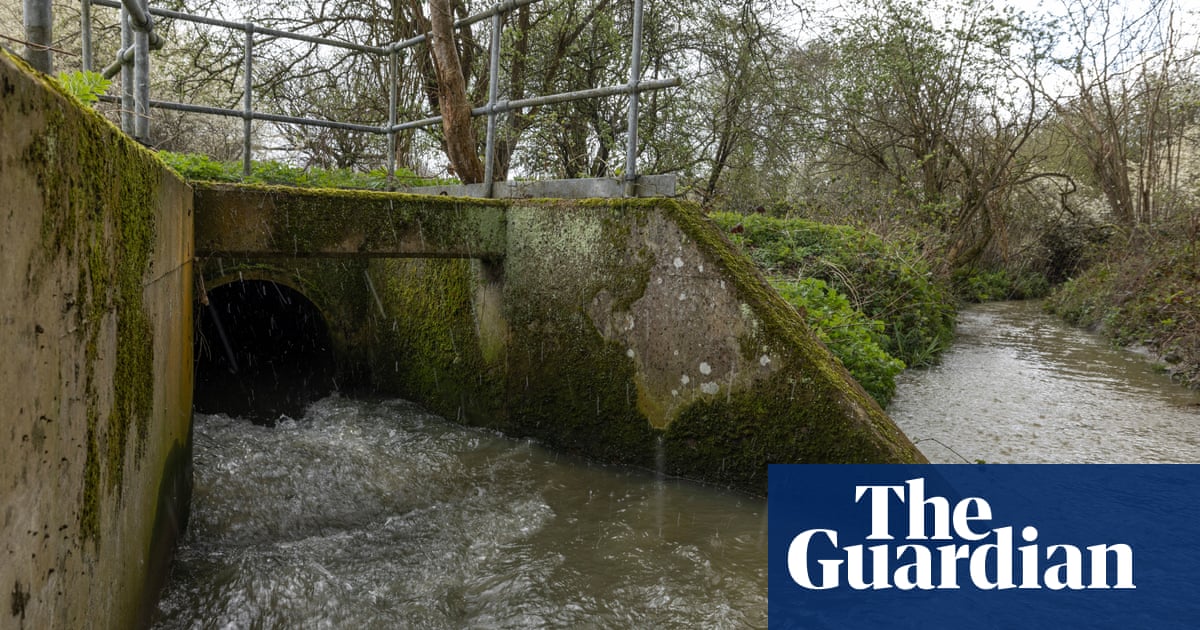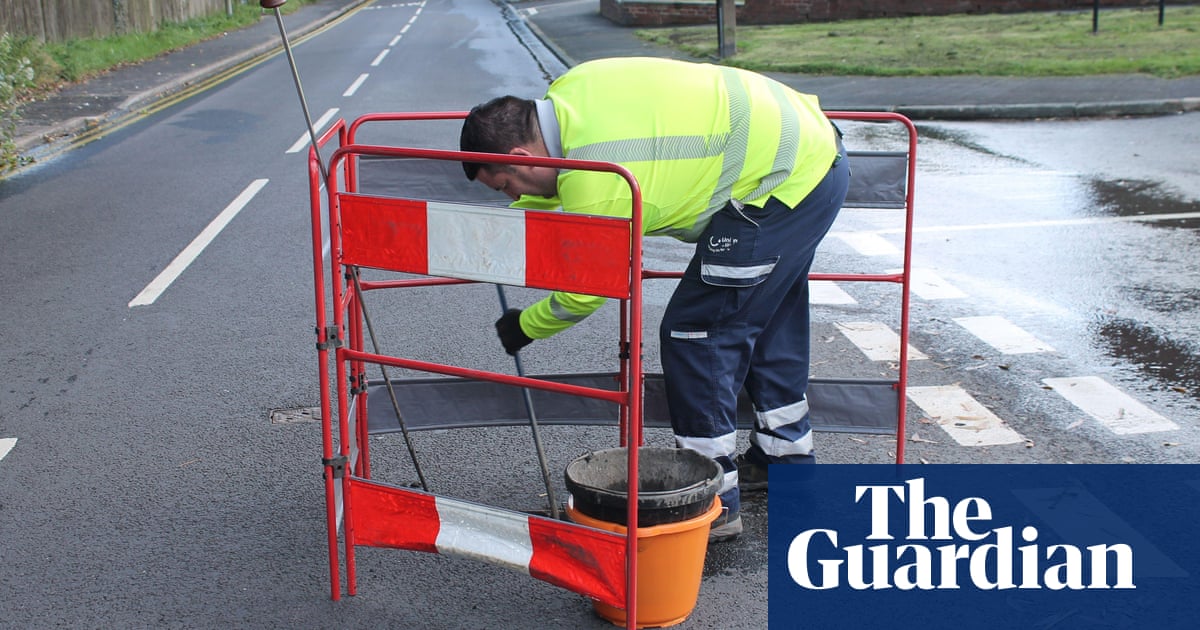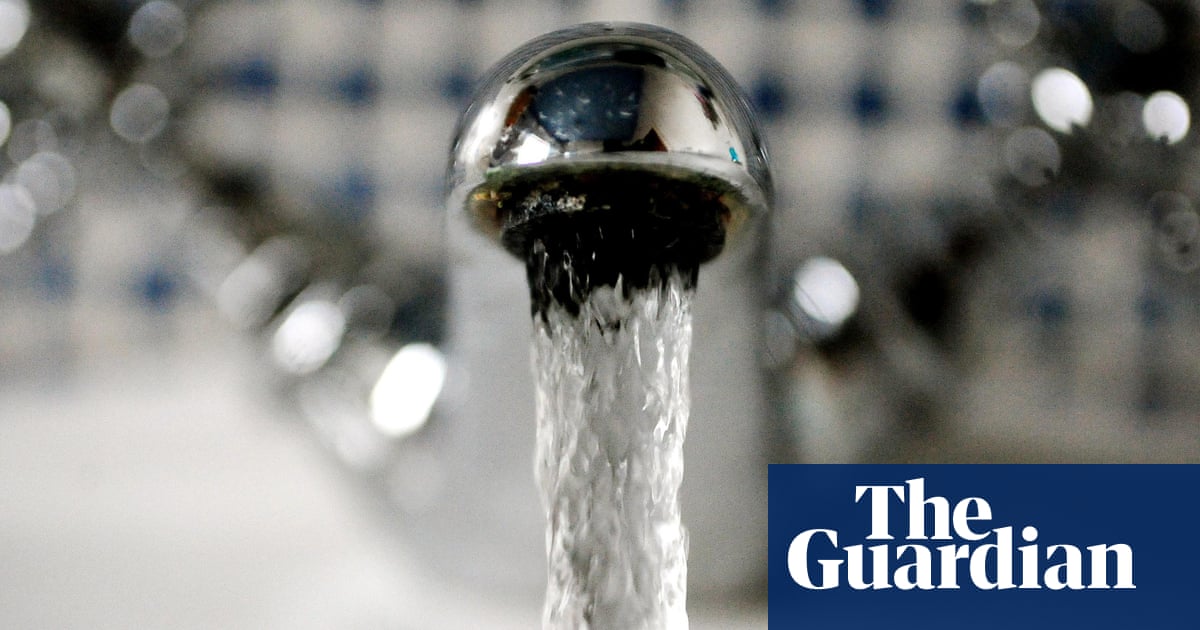
Water companies are facing a backlash from campaigners after revealing they will ask customers to pay for a record £96bn investment to fix raw sewage leaks, build new reservoirs and reduce leaks.
The main water and sewerage companies want the regulator, Ofwat, to approve their spending plans for 2025-30, which they say amount to almost doubling the investment into providing clean water, protecting the environment and securing future water resources.
As companies published their individual strategies on Monday householders were told they would pay on average £156 a year more by 2030 to pay for the investment into treatment works, sewage outflows and new reservoirs.
But some households face much bigger increases. Southern Water, which was fined a record £90m for illegal sewage dumping, is trying to raise customer bills by £262 to £674 a year by 2030. Thames Water, which has been at the centre of concerns over its financial stability, is seeking bill rises of £175 per year to bring household bills to £598 per year in 2030.
Water UK, the industry body, said the £96bn investment was a near doubling of current levels of money going into the privatised water system. The investment across the industry would create 30,000 jobs and 4,000 apprenticeships to help deliver improvements.
But campaigners for clean water said customers should not be paying for infrastructure investment that should have already been carried out to comply with companies’ operational permits – for example on discharging raw sewage or maintaining capacity at treatment works.
Becky Malby, of the Ilkley clean river campaign, said customers should not have to fund the expected £71m investment into reducing raw sewage spills into the River Wharfe, which has bathing water status.
“We are being told to pay again for upgrades at Ilkley that reduce the raw sewage discharges and start to clean up the treated sewage,” she said. “We think that’s Yorkshire Water’s job. We have already paid for Yorkshire Water to treat our sewage and maintain our sewage infrastructure. That’s what they told Ofwat they were doing. We didn’t pay our bills for Yorkshire Water to pollute our river while giving our money to rich shareholders.”
Mike Keil, the chief executive of the Consumer Council for Water, said: “If a water company has failed to meet existing environmental compliance, it should be putting that right at its own cost – households should not be footing the bill again.”
Gary Carter, the national officer at the GMB union, said: “Water bosses are the ones responsible for the terrible state of England’s rivers and waterways; they should be paying to restore them to good health, not the public … Water privatisation has failed – consumers shouldn’t have to pay for this failure.”
Ofwat is investigating companies for what it said were “shocking” failures in their water treatment works, and a criminal investigation by the Environment Agency was looking into potentially illegal sewage discharges.
Last week Ofwat ordered the companies to pay customers back next year as a penalty for poor performance.
David Henderson, the Water UK chief executive, defended the hit to customer bills. He said: “These record-breaking investment proposals will secure our water supply as we deal with a changing climate and a growing population.
“While increasing bills is never welcome, this investment in our country’s infrastructure is essential to ensure the security of our water supply. Water companies are seeking regulatory approval to reduce overflow spills into rivers and seas as fast as possible.”
Water UK said companies were more than doubling the number of households that were eligible to receive support with bills, to 3.2m, because they understood the impact of the cost of living crisis on families.
Sheila Adam, from the Clean River Kent Campaign, said: “Ofwat regulates the water industry on behalf of the public, and it should protect the public not the polluters.”
Dieter Helm, a professor of economic policy at the University of Oxford, said: “The question of whether the water companies have properly paid for capital maintenance and done what they are supposed to have done in the previous periods should come before any new borrowing and hence cost to customers.”
The water companies say their investment will pay for 10 new reservoirs to secure water supplies, cut leakage by more than a quarter by 2030 compared with the start of the decade, include £11bn spent to reduce raw sewage spills from storm overflows and create new nature-based schemes to manage rainwater and technology to better manage flows.
Ofwat has to decide over the next few months whether to approve the plans, and the increases to bills.












